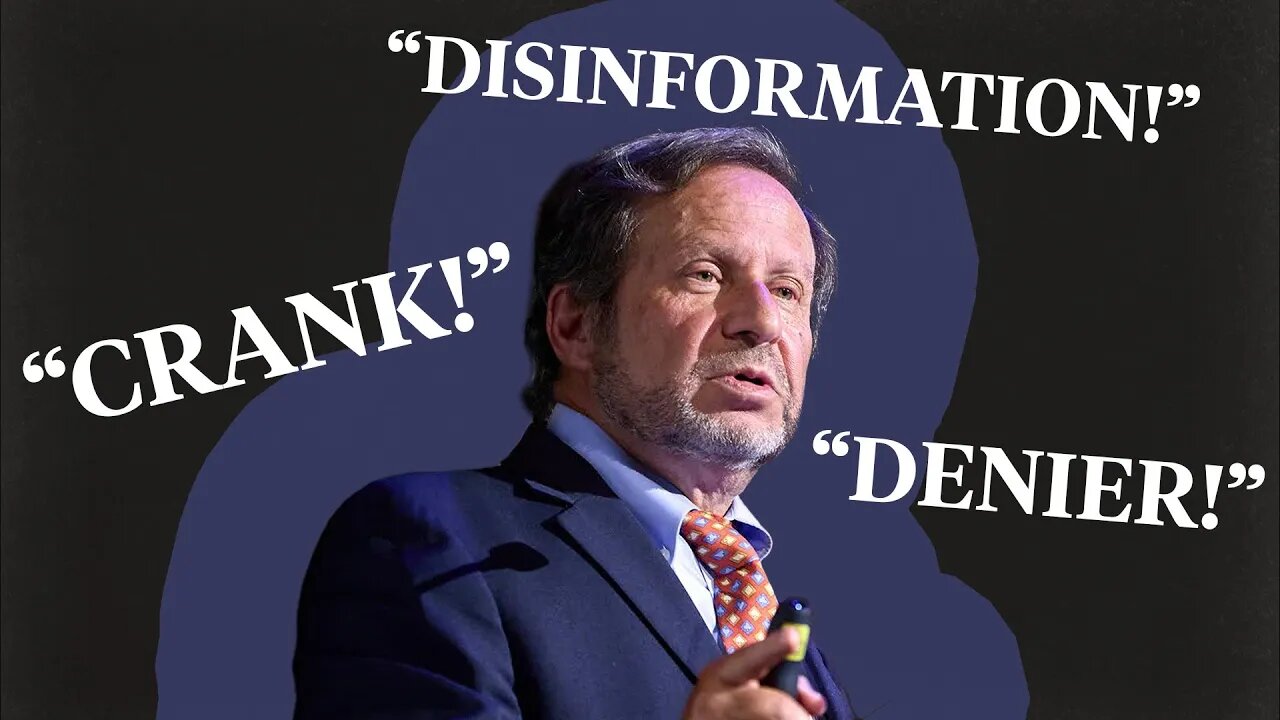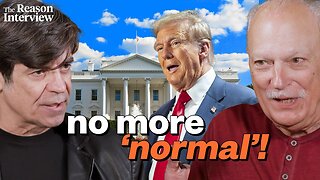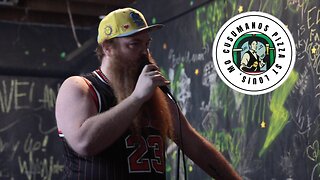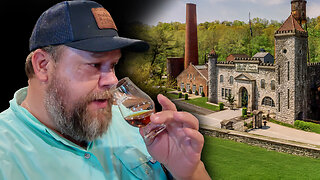Premium Only Content

The shameless attack on a climate change dissenter
We couldn't find any negative review of physicist Steven Koonin's 'Unsettled' that disputed its claims directly or even described them accurately.
https://reason.com/video/2023/02/13/the-shameless-attack-on-a-climate-change-dissenter/
In 2021, the physicist and NYU Professor Steven E. Koonin, who served as Undersecretary for Science in the Obama administration's Energy Department, published the bestselling 'Unsettled: What Climate Science Tells Us, What It Doesn't, and Why It Matters.'
The book attracted extremely negative reviews filled with ad hominem attacks, such as a short statement appearing in Scientific American signed by 12 academics, that instead of substantively rebutting Koonin's arguments, calls him "a crank who's only taken seriously by far-right disinformation peddlers hungry for anything they can use to score political points" and "just another denier trying to sell a book."
When dissenting scientists are implicitly compared to Holocaust deniers, or their ideas are considered too dangerous to be carefully considered, it undermines public respect for the field and can lead to catastrophic policy mistakes. It's human nature to favor evidence that confirms our biases and leads to simple conclusions. But for science to advance it's essential that moral certainty not override objective discussion, and that personal attacks not replace rational consideration of empirical evidence.
In a review of 'Unsettled' in Scientific American, Gary Yohe, an emeritus professor at Wesleyan University, gives the impression that he didn't read past the first few pages. The book has nine chapters filled with examples of exaggerations and outright falsehoods in both scientific and popular accounts. Yohe mentions just four claims taken from the first two pages, plus one from a chapter subtitle, and manages to refute none of them.
Yohee attacks Koonin's assertion that "[h]eat waves in the U.S. are now no more common than they were in 1900," claiming that "[t]his is a questionable statement depending on the definition of 'heat wave,' and so it is really uninformative. Heat waves are poor indicators of heat stress."
"If Yohe had read the book carefully, he would have found the official heat wave index used and why it matters. He offers no evidence that "heat stress"—something even less well-defined and hence less informative than "heat wave"—is greater than in 1900.
Koonin has been attacked by others for not being a climate scientist by trade. In most dogmatic religions, only the anointed are granted the authority to speak. But science is supposed to be a discipline that's open to anyone who can interpret relevant material.
After Koonin wrote a Wall Street Journal op-ed entitled "Greenland's Melting Ice Is No Cause for Climate-Change Panic" in February 2022, an organization called Climate Feedback, which calls itself "a worldwide network of scientists sorting fact from fiction in climate change media coverage," published a response. It labeled Koonin's article: "Cherry-picking, Flawed reasoning, Lack of context, Misleading."
While Greenland is losing ice, the main driver cannot be anthropogenic climate change because there is no steady increase in line with either human CO2 emissions or atmospheric concentrations of CO2. Carbon dioxide emissions and warming may be important but other factors were clearly more important in the past.
How is it "cherry-picking" to show all the data? The graph published in the op-ed clearly shows the data since 1900 and addresses all of it.
Ironically, the Climate Feedback review is guilty of cherry-picking. It claims to rebut Koonin by stating that a 2015 article in Nature "found that ice loss between 2003 and 2010 'not only more than doubled relative to the 1983–2003 period, but also relative to the net mass loss rate throughout the twentieth century'."
In other words, Climate Feedback picked the fastest eight-year increase over the 121 years span shown on the chart and compared it to the lowest 21 years. That's the definition of cherry-picking.
Why does it matter that Koonin's critics don't want to bother responding to his arguments? Substantive debate is how science advances. If climate science is just an echo chamber, we may make perverse short-term overreactions to the data that have large costs and possibly even negative environmental effects. Many historical policy disasters have been caused by people claiming they shouldn't have to engage with informed critics.
'Unsettled' is about more than just climate policy—it seeks to free science from the shackles of organized dogma, the sole domain of an anointed elite, who feel justified calling their critics "cranks," "deniers," and "disinformation peddlers." Why engage with a heretic when he can be banished from the church altogether?
Edited by John Osterhoudt; camera by Luis Gutierrez; art by Nathalie Walker; additional editing by Danielle Thompson.
-
 52:14
52:14
ReasonTV
27 days agoPolitical chaos brings colossal transformation | Martin Gurri | The Reason Interview
1.13K -
 18:12:15
18:12:15
LFA TV
1 day agoLFA TV CHRISTMAS EVE REPLAY
133K14 -
 13:32
13:32
Scammer Payback
16 hours agoChanging the Scammer's Desktop Background to his Location
6.35K3 -
 4:21
4:21
BIG NEM
18 hours agoNikola Tesla's Secret to Cultivating Creativity & Genius
4.14K1 -
 15:03
15:03
The Anthony Rogers Show
1 day agoAnthony Rogers - Live at Cusumano's Pizza (Upstairs)
1.2K1 -
 4:33:48
4:33:48
tacetmort3m
1 day ago🔴 LIVE - THE ZONE KEEPS PULLING ME BACK - STALKER 2 - PART 15
70.1K12 -
 22:45
22:45
Brewzle
22 hours agoI Went Drinking In A Real Bourbon Castle
50.8K4 -
 48:36
48:36
PMG
1 day ago $4.54 earned"Parkland Parent Speaks Out On Kamala Harris Using Victims"
41.3K12 -
 4:06
4:06
The Lou Holtz Show
21 hours agoCoach Lou Holtz’s Heartfelt Christmas Message 🎄 | Family, Faith & Notre Dame Spirit 💚 #christmas
29.6K -
![ROSEANNE BARR - Her Journey, TRUMP, and the MAGA GOLDEN AGE! [INTERVIEW]](https://1a-1791.com/video/s8/1/M/m/B/2/MmB2v.0kob.1-small-ROSEANNE-BARR-Her-Journey-T.jpg) 51:35
51:35
Dr Steve Turley
1 day ago $21.82 earnedROSEANNE BARR - Her Journey, TRUMP, and the MAGA GOLDEN AGE! [INTERVIEW]
64.9K54